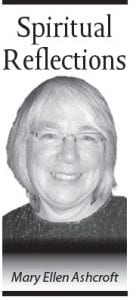Forty years ago, the world was rocked by the “death of God” movement. Believers were up in arms—how dare anyone say God is dead?
But central to any spiritual quest is our willingness to let our old gods die.
As human beings, we inevitably create gods who look a lot like us, who share our prejudices and inclinations. This is true for individuals and societies. The god of medieval nobility looked and acted like a king. The god of British colonialism was a proper, white gentleman.
These need to die. So does the ‘god’ who tells a Florida pastor to burn the Koran; the ‘god’ who believes in apartheid in South Africa; the god who promotes racial purity in the American South. How about the New Yorker cartoon ‘god’ who doles out lightning bolts to some and Cadillacs to others? These ‘gods,’ fabricated for people’s ends, should be buried.
But we also need to be willing to let go of our immature gods. During the Cuban Missile Crisis I developed an elaborate ritual of memorizing a Bible verse, and kissing a cross with a picture of Jesus—trusting this would stave off nuclear holocaust. That magic god needed to die.
Or in my mid-20s as a young mother, my god was one who would hold my family together as long as we prayed together. This god wasn’t bad, but small—more like Santa. I could control this god—if I did my part, he would do his—I’m good, and get blessed. Like the children of Israel, many of us prefer a golden calf (that can be dusted off and then put away) to a burning bush God, who— when asked for a name—says: “I am becoming what I am becoming…”
The spiritual quest demands that we let go of inadequate gods, but not remain ‘god-less’ in our reaction—that we instead begin to embrace the sacred in a deeper way. This is what we’re asked to do by God, whom C.S. Lewis called “the great iconoclast”—the one who rids us of the idols we hold comfortably.
In an interview Elizabeth Edwards gave shortly before she died of breast cancer and a philandering husband, she talked about having to give up a god who made sure good people were rewarded by protection from suffering. She gave up that one and embraced one, “who promised enlightenment and salvation. And that’s all. Didn’t promise us protection.”
Edwards grew into a God with whom she could walk to her death, and I believe that is what we’re all called to do. It’s too easy to reject the idols various people have fashioned, or ones our own childhoods provided, and not reach out for a bigger God whom we can never fully understand.
And yet, that needn’t stop our quest. Where might we find God? C. S. Lewis wrote about moments of “joy”—unexpected glimmers of something so wonderful— that are small tastes of God. According to Lewis, these experiences—at the birth of a child, a concert, on a morning in the Boundary Waters—are meant to beckon us toward greater joys.
All fine, but what about when we gather in worship? How can we share our ineffable experiences of the divine? The church has agreed on some words for expression in liturgy and claimed the Bible as a text to grapple with. But we must remember that our language is approximate—always changing, translated, interpreted. We depend on metaphors to begin to express the divine and religious experience, and yet even heaped up together, they will never fully grasp the mystery. As St. Augustine said, if we feel we have understood God, what we have understood is not God. We end up dependent on ritual, sacrament, and community to point us in the right direction. This is hard for our little “enlightenment trained brains” which have set us up to label, encompass, prove things. We cannot.
It’s easier to clutch our old gods, or to reject the possibility of the divine out of hand. But the spiritual quest calls us to examine our idols, and allow for new, less comfortable Presence. Even the first Christians—good Jews that they were—had to let go of a certain kind of God—one who would never have become human, who could never have died. To embrace the divine, they had to allow their old god to die, and welcome one who was vulnerable, weak, and able to die.
If your god is dead, maybe it’s time for a respectful burial. And then an openness to one who will meet you in new ways.
Each month a member of the Cook County Ministerium will offer Spiritual Reflections. This month’s contributor is Mary Ellen Ashcroft, Vicar of Spirit of the Wilderness Episcopal Church.



Loading Comments